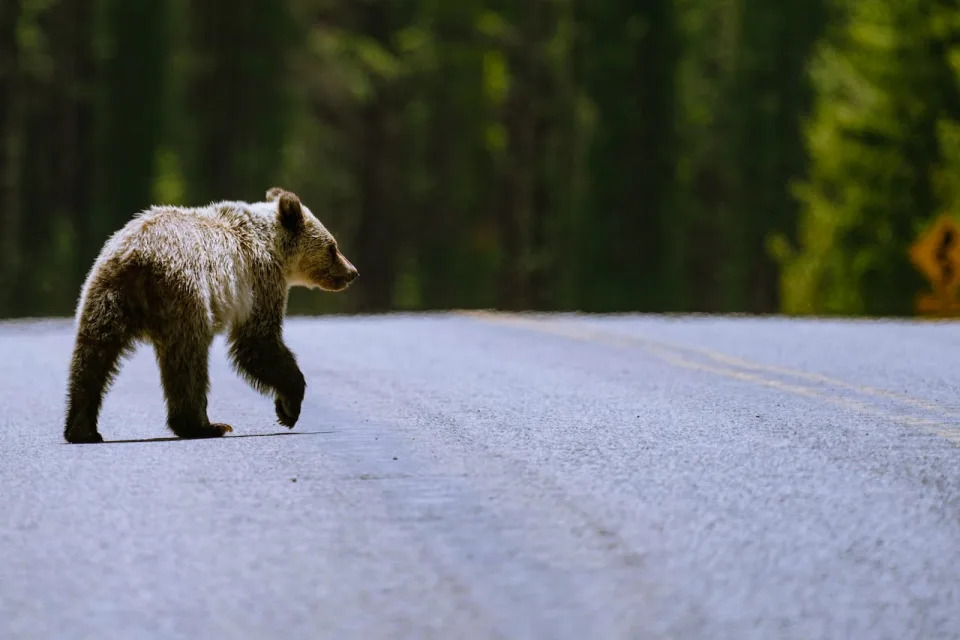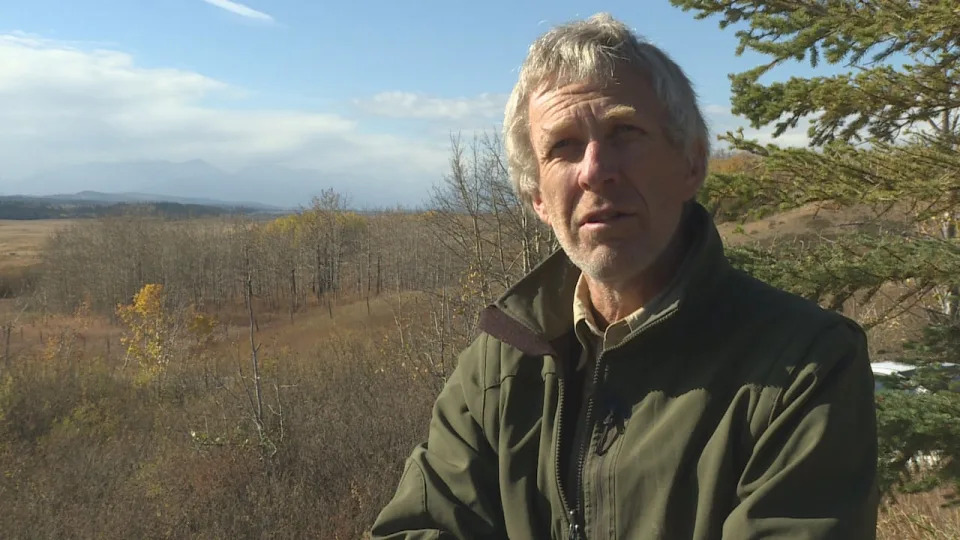CBC
Mon, October 9, 2023

The province's latest Grizzly Bear Recovery Plan calls for more human-wildlife conflict specialists to be hired in areas of high need in Alberta. (David Gray/CBC - image credit)
Alberta's former human-wildlife conflict specialist is calling on the province to fill the position he left vacant last year, given the volume of human and bear interactions seen in the province this fall.
Jay Honeyman retired in spring 2022, after a decade spent working as the province's only large carnivore conflict biologist — primarily dealing with grizzly bears.
Honeyman said his job was proactive in nature, and that he focused on preventing conflicts between humans and bears from happening in the first place. Often, this was done through education and by removing or securing attractants like food sources from public and private properties.
The goal? To improve coexistence between people and bears, and to increase tolerance for grizzly bears in Alberta, said Honeyman.
Today, Honeyman's post remains unfilled.
"Bottom line, there is no dedicated position to doing this kind of work and bears and people are interacting more than ever and it's not going to change. It's going to continue to be an ongoing issue," said Honeyman, whose regional role covered the Rocky Mountain House area down to the Montana border.

Jay Honeyman a human-wildlife conflict biologist, says outdoor enthusiasts need to be aware of their surroundings to help avoid a bear encounter. Jay Honeyman was the province's first and only large carnivore conflict biologist. He says the role was fairly niche, and he wouldn't be surprised if it was cut for a broader role with higher priority. (Dave Gilson/CBC)
Honeyman added that people living and working in bear country need to feel safe, something difficult to achieve when there is no one working to prevent bears from causing property damage or creating public safety concerns.
"If landowners are not going to be tolerant of grizzly bears where they live and work and recreate, then we're going to end up with a lot of bears being killed because of a low tolerance for their presence."
Honeyman said he was hopeful someone would be hired to replace him, but that he retired during a year of ministry changes and later, budget cuts. Now, he said he isn't surprised that the role remains vacant.
After a number of human-bear interactions throughout Alberta this fall, Honeyman said it's time the province follows its own recommendations and hires another expert to fill the role.
Grizzly Bear Recovery Plan calls for more specialists
The province's latest Grizzly Bear Recovery Plan, released in 2020, calls for a database to track the location, cause and response to human and grizzly bear conflicts.
It also calls for more conflict specialists to be hired in areas where there's high need.
Honeyman said most of what's listed in the 83-page plan has not been completed.
"It's been written up, but it hasn't gotten off the page. It needs to get put into practice. It needs to get executed, and it hasn't been," said Honeyman.
"What's the point of the recovery plan if we're not going to follow the recommendations within it, including one of these positions within every [bear management area]?"
Grizzly bears have been considered a threatened species in Alberta since 2010.
Honeyman said the plan is important for not only improving the province's grizzly bear population numbers, but also in ensuring landowners have help with their concerns.
"We need to somehow increase tolerance and that occurs when coexistence is possible and people aren't feeling threatened for their safety."
New human-wildlife coexistence program
According to a spokesperson for Alberta's Ministry of Forestry and Parks, the department is developing a new provincial human-wildlife coexistence program.
That team would be responsible for the BearSmart program, as well as "carnivore conflicts with agriculture producers, predatory damage prevention, ungulate damage prevention and compensation program delivery," said spokesperson Pam Davidson.
The province did not provide an answer as to whether it has future plans to fill Honeyman's old role, or why the role hasn't been filled.
Instead, Davidson said a team of experts in Forestry and Parks, as well as in Environment and Protected Areas, are working to reduce the number of human-wildlife conflicts in Alberta.
"Alberta's government is committed to protecting wildlife and taking necessary steps to ensure public safety on Crown land."
No comments:
Post a Comment